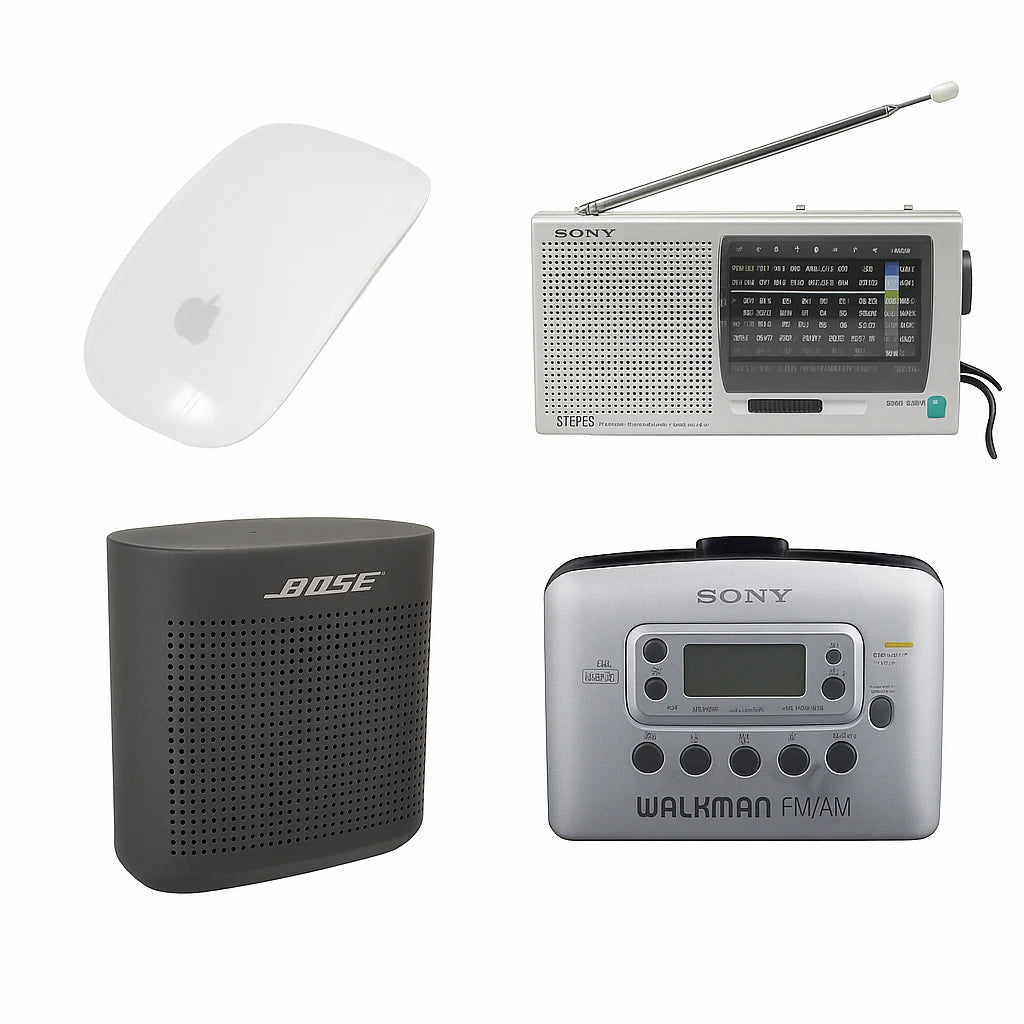
Cúlra &agus Stair an Agfa Agfamatic 100 Sensor
Cad a gheobhaidh tú: comhoibriú ar bhunús an dearaidh agus oidhreacht an cheamara póca vintage seo.
Cuireadh an Agfa Agfamatic 100 Sensor i láthair sna 1970idí luatha mar chuid de shraith póca inrochtana Agfa. ``` Cruthaíodh é chun tacú le formáid scannán 110 a seoladh le déanaí ag Kodak, ag tairiscint bealach comhoiriúnach, simplí do úsáideoirí chun grianghraif laethúla a ghlacadh. Is é a ghné shainiúil—an cnaipe shutter dearg "Sensor" mór—a rinne an grianghrafadóireacht intuigthe, fiú do leanaí. Nuair a bhí sé ina shíor-ghrianghraf teaghlaigh, tá sé anois tar éis éirí mar fhonn culta i measc na n-íocónach analógach dá charm lo-fi.
Ag coinneáil an cheamara den chéad uair tar éis a bheith gnáthaithe le trealamh digiteach nua-aimseartha, mothaíonn sé cosúil le céim siar in am—tá a thógáil éadrom agus an cnaipe dearg mór amháin ag déanamh go bhfuil grianghrafadóireacht cosúil le cluiche arís.

Príomhghnéithe de Chórais Agfa Agfamatic 100
Cad a gheobhaidh tú: briseadh síos tapa ar a shonraí agus ar a ghnéithe gníomhacha simplí.
Lens &agus Simplíocht Grianghrafadóireachta
Úsáideann an Agfa Agfamatic 100 Sensor lionsa 26mm f/11 comhoiriúnach le fócas socraithe. Níl méadar solais tógtha ann, rud a chiallaíonn go n-oibríonn sé is fearr i solas lae geal. Is é an cur chuige seo gan frills an rud a dhéanann sé spraíúil—tá sé faoi spontaneity, ní faoi chruinneas.
Foirm Phóca
Tá a phlaisteach beag
Tacaíocht Flash
Ar dtús, thacaigh sé le cúpóin flash Magicube—níos mó ná mar a mheasadh mar earraí bailithe nostalgiúla anois.

Conas a bhfaighidh daoine tairbhe as a úsáid i 2025?
Cad a gheobhaidh tú: forbhreathnú ar na lucht féachana a d'fhéadfadh grá a bheith acu don cheamara seo inniu.
Más ealaíontóir thú nó más duine fiosrach tú, cuireann an Agfamatic duais ar na daoine a ghlacann le neamhfoirfeacht. Tá sé oiriúnach do dhaoine a dhéanann zines, do mhúinteoirí a mhúineann “grianghrafadóireacht mall,” agus fiú do ghrianghrafadóirí digiteacha le taithí atá ag lorg comhoiriúnacht spraíúil.
Samhlaigh an cheamara póca seo a thabhairt do mhac léinn a d'úsáid smartphone amháin riamh — athraíonn an cliceáil meicniúil agus an dul chun cinn scannáin grianghrafadóireacht go rud éigin tactile, mall, agus cuimhneach.

Úsáidí Cruthaitheacha Inniu
Cad a gheobhaidh tú: spreagadh maidir le conas an ceamara lo-fi seo a chomhtháthú i dtionscadail nua-aimseartha.
Sráid &agus Saol Laethúil
Déantar a dhearadh discréideach go foirfe do shráid agus do thaisteal. Beidh tú ag comhoibriú leis an radharc seachas a bheith i do dhóthain air.
Zines, Colláiste &agus Tionscadail DIY
Cuireann na quirks de 110 diúltachtaí le físí eispéireach. Is féidir le scannán a scannadh a bheith colláistí nó a bheith comhoibrithe i saothair meán measctha.
Inis rolla amháin a spreag laistigh dom zine cruthaitheach iomlán — chuaigh an gráin, na nochtanna neamhiontaofa, agus an fócas bog i bhfeidhm ar dhílis an tionscadail.

Treoir Ceannaigh: Comhoibrithe Dara Lá
Cad a gheobhaidh tú: seiceálacha praiticiúla sula gceannaíonn tú do Agfamatic 100 Sensor féin.
Sula dtógfaidh tú an ceamara póca vintage seo, déan scrúdú ar a chiorcal scannáin agus ar an gcnaipe scaoilte dearg cáiliúil. Is é áilleacht na simplíochta go bhfuil níos lú fadhbanna féideartha ann, ach tá feidhm mheicniúil réidh riachtanach.
- ✅ Scrúdaigh freagairt an chnaipe scaoilte.
- ✅ Scrúdaigh an lever chun an scannán a chur chun cinn.
- ✅ Féach tríd an bhféachán le haghaidh soiléireachta.
- ✅ Deimhnigh raon praghsanna (~€10–€30).
- ✅ Is fearr le samhlacha oibre ná deisiúcháin ar chnaipe scaoilte lochtach.
Bhí sé cosúil le gold a bhuachan nuair a fuair mé Agfamatic oibre ithrift ‑store bin—gadget beag atá luchtaithe le gealladh cruthaitheach mór.

Conclúid: Cén fáth a roghnaíonn tú an Agfa Agfamatic 100 Sensor?
Cad a gheobhaidh tú: machnamh deiridh ar cén fáth a bhfuil tábhacht ag baint leis an gceamara scannán lo‑fi seo inniu.
Ní bhaineann an Agfa Agfamatic 100 Sensor le géarghá leighis—tá sé faoi ghrá a thabhairt do charachtar lo‑fi analógach. Éadrom agus inacmhainne, is ceamara leabhar sceitse é do do thuras cruthaitheach, ag spreagadh spraoi laethúil.
Uaireanta is é an lámhaigh neamhfoirfe, le gráin agus leachtanna solais, a thagann i gcion is mó—tá lochtanna ag iompar an fhírinne mhothúchánach is doimhne.
Cinntí tapa
- Roghnaigh más mian leat grianghrafadóireacht lo-fi shimplí, quirky.
- Seachain más é an mionsonra ultra-sharp do phríomhoide.
- Ní gá bataire—éasca meicniúil do thosaitheoirí.
- Déantar é a choinneáil i do phóca, rud a chiallaíonn go bhfuil sé i gcónaí leat.
Sochair
- Dearadh an-simplí, éasca le húsáid.
- Éadrom, go deimhin in ann a choinneáil i do phóca.
- Cruthaíonn sé cuma analógach nostalgiúil.
- Rochtain inrochtana ar ghrianghrafadóireacht scannán.
Neamhoird
- Teoranta géar agus rialú nochtadh.
- Scannán 110 níos lú coitianta ná 35mm.
- Níl luach deisiúcháin má tá sé briste—ceannaigh samhlacha oibre amháin.
Ceisteanna Coitianta
An féidir leat fós scannán 110 a cheannach don Agfa Agfamatic 100 Sensor? Sea, tá soláthraithe boutique cosúil le Lomography ag táirgeadh stocanna scannán 110 nua, agus is féidir go bhfaighidh tú rollaí atá caite uaireanta ar an dara lá.
An bhfuil gá le bataireanna don Agfamatic 100? Ní gá bataireanna. Oibríonn an ceamara go hiomlán go meicniúil, rud a fhágann go bhfuil sé saor ó chruatan.
Cad ba chóir dom a sheiceáil sula gceannaím ceann atá ar an dara lá? Is iad na rudaí tábhachtacha ná an lever chun an scannán a chur chun cinn, cliceáil an cnaipe shutter, soiléireacht an lionsa, agus coinníoll ginearálta na cosmaideacha.
Cad é an cineál torthaí is féidir liom a bheith ag súil leis ó scannán 110? Draíocht lo-fi: gráin shoiléir, vignetting, bog, agus lochtanna deas.










0 tuairimí